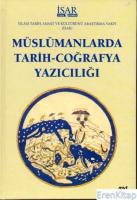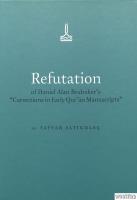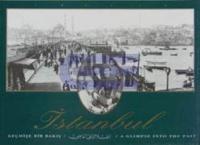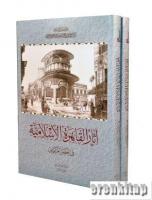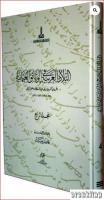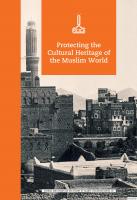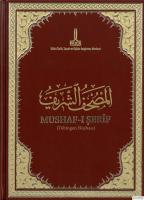Proceedings of the Fourth International Symposium on Islamic Civilisation in the Volga - Ural Region Ufa 21 - 22 October 2010
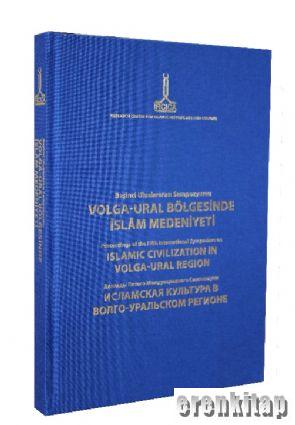
The fifth symposium on the theme “Islamic Civilisation in Volga-Ural Region” was organized jointly by IRCICA, Tatarstan Academy of Sciences, Shehabeddin Merdjani Institute, and Russia Islamic University (Kazan) in June 2012. The papers presented dealt with specific topics and eminent figures within the history of thought and trends of modernization in Volga-Ural region, contacts and exchanges having taken place between the region and various parts of the Muslim world in cultural and educational areas, urban and architectural developments in the region and inter-cultural influences, among others. In the preface Dr. Halit Eren points to the importance of Volga-Ural region in Islamic history. The people of the region converted to Islam over time by getting acquainted with it through contacts with merchants coming from Kharezm and Khorassan. Encouraged by this development, Almish Khan, ruler of the Bolghar State in the voga region at the beginning of 10th century, established relations with the Abbasid Caliphate by sending an envoy to Caliph Muqtedir Billah, requesting him to send religious scholars to the Boghar to teach the precepts of Islam. The Caliph responded favourably, sending an Abbasid delegation to the Bolghar State in the year 922. Almish Khan converted to Islam and his state became the first Islamic country in the region. The first account of this relationship is the travelogue of Ibn Fadlan, who was the secretary to the Ambassador in this mission to the Bolghar State. Afterwards cities were founded in the region with Islamic institutions such as mosques, madrasas and law courts. Bolghar city itself turned into a vibrant commercial center that drew merchants from Arab, Persian, Turkoman, Caspian, Scandinavian and Russian lands. Later, after foundation of Kazan city, Kazan Khanate became the second Islamic state in the region and Islam maintained its vitality for centuries as one of the most important civilizational traditions. These processes and their present heritage are highlighted in the series of symposiums organized by IRCICA in cooperation with governments and academic institutions of the region. The first two symposiums were held in Kazan, Tatarstan, in 2001 and 2005; the third and the fourth were held in Ufa, Bashkiria in 2008 and 2010. Their proceedings were published. It is hoped that this new volume will further contribute to the work of interested scholars and researchers.
- Açıklama
The fifth symposium on the theme “Islamic Civilisation in Volga-Ural Region” was organized jointly by IRCICA, Tatarstan Academy of Sciences, Shehabeddin Merdjani Institute, and Russia Islamic University (Kazan) in June 2012. The papers presented dealt with specific topics and eminent figures within the history of thought and trends of modernization in Volga-Ural region, contacts and exchanges having taken place between the region and various parts of the Muslim world in cultural and educational areas, urban and architectural developments in the region and inter-cultural influences, among others. In the preface Dr. Halit Eren points to the importance of Volga-Ural region in Islamic history. The people of the region converted to Islam over time by getting acquainted with it through contacts with merchants coming from Kharezm and Khorassan. Encouraged by this development, Almish Khan, ruler of the Bolghar State in the voga region at the beginning of 10th century, established relations with the Abbasid Caliphate by sending an envoy to Caliph Muqtedir Billah, requesting him to send religious scholars to the Boghar to teach the precepts of Islam. The Caliph responded favourably, sending an Abbasid delegation to the Bolghar State in the year 922. Almish Khan converted to Islam and his state became the first Islamic country in the region. The first account of this relationship is the travelogue of Ibn Fadlan, who was the secretary to the Ambassador in this mission to the Bolghar State. Afterwards cities were founded in the region with Islamic institutions such as mosques, madrasas and law courts. Bolghar city itself turned into a vibrant commercial center that drew merchants from Arab, Persian, Turkoman, Caspian, Scandinavian and Russian lands. Later, after foundation of Kazan city, Kazan Khanate became the second Islamic state in the region and Islam maintained its vitality for centuries as one of the most important civilizational traditions. These processes and their present heritage are highlighted in the series of symposiums organized by IRCICA in cooperation with governments and academic institutions of the region. The first two symposiums were held in Kazan, Tatarstan, in 2001 and 2005; the third and the fourth were held in Ufa, Bashkiria in 2008 and 2010. Their proceedings were published. It is hoped that this new volume will further contribute to the work of interested scholars and researchers.
Stok Kodu:9789290632405Boyut:16x24Sayfa Sayısı:224Basım Yeri:İstanbulBasım Tarihi:2015Kapak Türü:CiltliKağıt Türü:1. hamurDili:English, Russian and TurkishResim Sayısı:1
- Yorumlar
- Yorum yazBu kitabı henüz kimse eleştirmemiş.
- Yeni Gelenler




